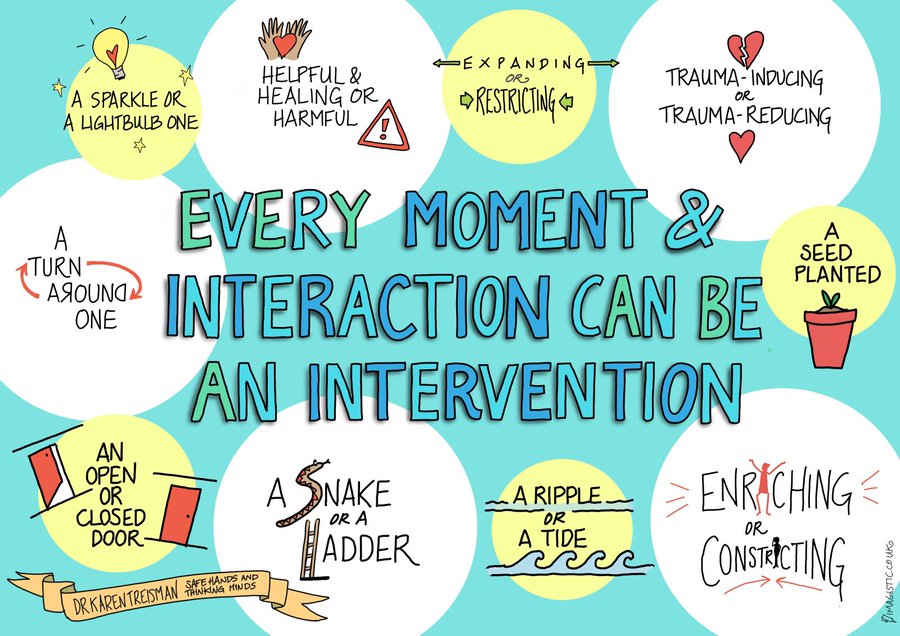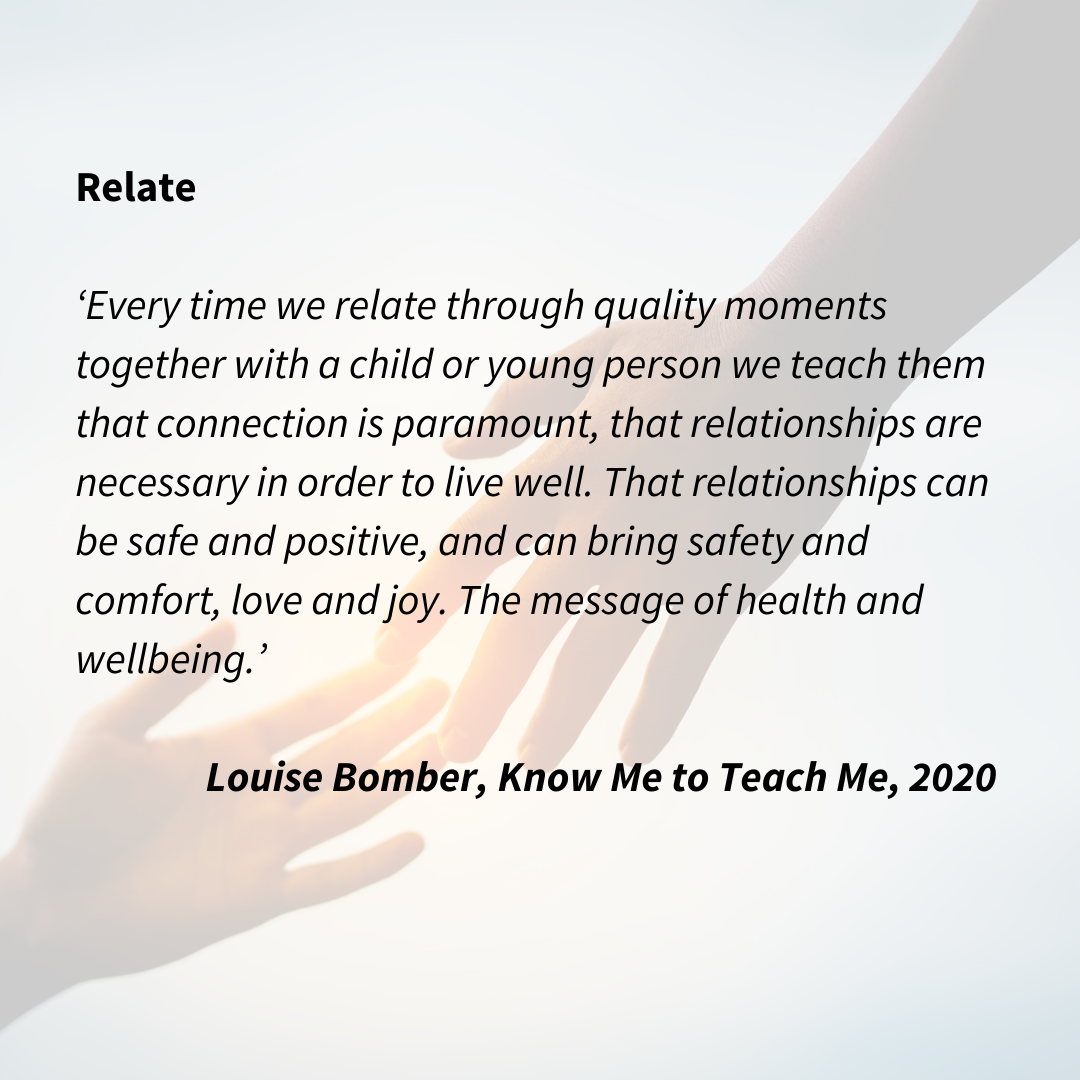Relationships and Belonging
Every interaction is an opportunity to help a child / young person grow and develop:
- We learn through interactions and relationships
- Repeated experiences become habits
- These become wired in our brains
- This cycle increases the chances of us repeating these habits
- These habits and wiring can improve and support resilience and wellbeing

“Just one emotionally available adult in the school, community or home can make all the difference…

As part of a Whole School Approach we encourage schools to consider relational aspects of school ethos especially in the context of behaviour policies.
Relationships Policies*
(*Increasingly referred to as Relational Policies to avoid confusion with sex and relationships policies!)
"We must get relationships on the map in school and then prioritise relationships first before anything else, yes, even the curriculum!
Nothing must ever be at the expense of our relationship with the children and young people we are alongside, Nothing".
Louise Bomber: Know Me to Teach Me (A very highly recommended read, alongside the work of Paul Dix)
Work on creating Relationships Policies is making huge strides as more and more schools and settings begin to explore Trauma Informed Practice. Both Louise Bomber and Paul Dix offer guidance / outline policies. Our colleagues in the Education Psychology Service are looking closely at how to support schools to develop relational policies.
There is a Belonging Framework for schools and relational policies are being looked as part of that.
TIS Training in Cornwall
Practitioners who trained with Trauma Informed Schools UK will have been provided with a sample relationships policy based on the PRRR model and some additional guidance materials.
Local Examples of relational / positive behaviour policies (last updated December 2023)
- A trauma informed schools relationship policy Trevithick
- A trauma informed schools relationship policy St Meriadoc Infants
- Bodriggy Academy - Positive Behaviour policy
- Poltair School - Behaviour Policy
Some examples of work from other areas on this include:
Developing an Attachment Aware Behaviour Regulation Policy - Brighton and Hove
Guidance for Developing Relational Practice and Policy - Devon
An excellent and detailed exploration of developing relational policies
Documents from the Devon site
Guidance for Developing Relational Practice and Policy
Relational Learning: Supporting learning, development and wellbeing through relationship. (including audit tool)
Quick guide to Developing Relational Practice and Policy (2 pages - from main guidance document Appendix 1)
Page last updated: 29 December 2023


